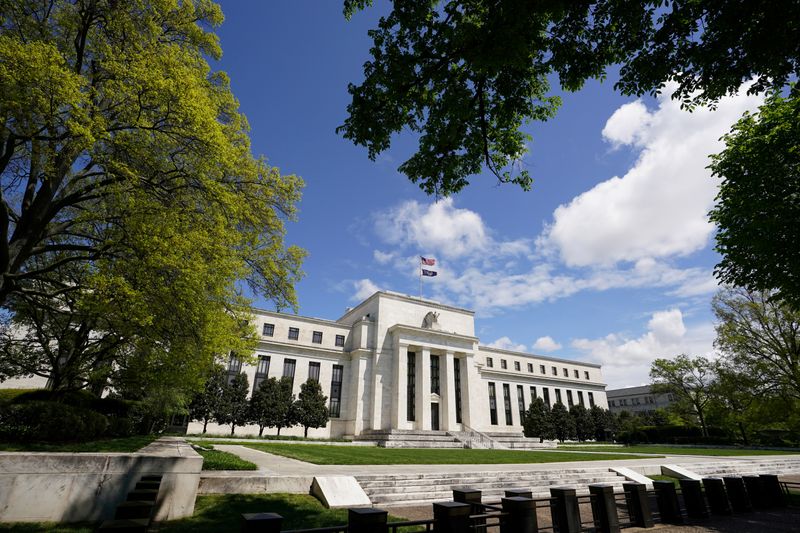By Howard Schneider
(Reuters) - The Federal Reserve's promise in the early days of the coronavirus pandemic to flood the U.S. economy with trillions of dollars seemed like the proverbial central bank bazooka.
It has been more of a trickle in practice, with activity outside the U.S. Treasury and other core financial markets so far only a fraction of what's available, and with lending to companies in the "real" economy virtually nonexistent.
When Fed chair Jerome Powell appears before the House Financial Services Committee on Tuesday to discuss the central bank's crisis response he will likely be pressed on that: More than three months into the worst economic meltdown since the Great Depression the Fed so far has made no loans under a vaunted "Main Street" program for small and medium sized companies, provided only $1.2 billion to local governments, and holds just $8.3 billion in corporate bonds.
It may, as Fed officials contend, be overall good news, and evidence their mere announcement of support for the economy has kept private lenders and borrowers transacting on their own, kept financial markets stable, and lifted confidence the Fed could keep the worst from happening.
Still, analysts including former Fed chair Ben Bernanke have questioned whether the Fed has been too strict in setting up its programs. While many worked as intended, the fact no Main Street loans have been issued "is a concern both politically and also in terms of getting liquidity to the firms that need it," Bernanke said last week in a Brookings Institution webinar.
Bernanke said the Fed may need to make its laboriously designed Main Street program "more generous," with lower costs for borrowers or subsidies for banks initiating the loans, if it wants to keep otherwise healthy small and medium businesses from ruin in the crisis.
"What we need is a compromise where we assist short term survival for small firms while not creating zombie firms," that survive on cheap credit alone, Bernanke said. "It is not clear that the Main Street program ... is going to be enough."
LITTLE UPTAKE
So far none of the programs set up to backstop companies and markets outside the financial sector have seen much use. By contrast more traditional programs to ensure financial institutions keep doing business in a crisis have been more extensive and by most accounts successful.
Since late February the central bank has increased its overall balance sheet - a measure of its footprint in the economy - from $4.2 trillion to $7.1 trillion.
Most of that stemmed from keeping the government bond and mortgage-backed securities markets on track: holdings of U.S. Treasuries and MBS increased around $2.4 trillion. Foreign central banks swapping their currencies for dollars accounted for another roughly $230 billion.
What distinguished the response to this crisis from the 2007 to 2009 financial meltdown was the offer to lend directly to private firms and local governments. Announced with fanfare in early April, the Fed said it would, among other steps, provide around $2 trillion to buy bonds to finance large corporations; lend directly to small and medium sized businesses; and help state and local governments raise funds to meet expenses.
Weeks later those programs are up and running - the Fed on Monday launched its latest effort to purchase new corporate bond issues - but of the $1.85 trillion notionally available only about $9.5 billion has been tapped.
The Fed of course can't make people apply for loans, and the credit costs and other measures that might trigger more aggressive purchases of corporate bonds, for example, have improved since the early days of the pandemic.
Powell in prepared remarks for Tuesday's hearing said Main Street lending may prove valuable "in the months ahead" for firms hit by the dramatic drop in economic activity during the pandemic.
Still, analysts are cutting estimates of how large the Fed's balance sheet might grow during a crisis some thought might test its capacities.
The CARES Act raised the possibility of $4.5 trillion in credit flowing from the central bank. The total may end up less than a fourth of that.

"The usage of the Fed credit facilities has been much slower and smaller than we had anticipated," Oxford Economics analyst Kathy Bostjancic wrote last week, estimating perhaps only half of the Main Street loans available will be taken and perhaps less than a third of the corporate bond fund be used.